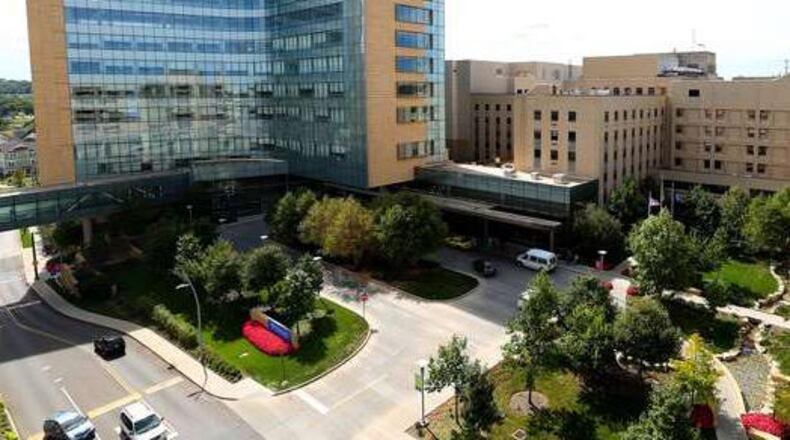Miami Valley Hospital North receives its water from the city of Englewood, so it was already cleared, Howard said.
Premier hospitals intend to clean all the company’s ice machines.
“And as a precautionary measure, the city of Dayton will be performing water testing on site over the next three days,” Howard added.
Elizabeth Long, a spokeswoman for Kettering Health Network, said Montgomery County lifted the boil advisory for the network’s main hospital campuses earlier Thursday.
“Montgomery County notified us that the boil advisory has been lifted for Kettering Medical Center … Grandview Medical Center, Southview Medical Center and Kettering Behavioral Medicine Center,” Long said.
Several of the network’s facilities were still considered under an advisory, however. Long said the company sent out boil advisory maps to its facilities, telling them to abide by the advisory if they were in still-affected areas.
“We have more than 120 outpatient facilities across the network,” Long noted.
The network told staff: Don’t drink water from faucets. Don’t ingest ice. Hospital plant engineering departments were making bottled water available.
Long couldn’t say in an interview around 11 a.m. how many patients or employees were still under an advisory.
“Patient care was never affected during this,” she said.
Anyone who becomes ill as a result of the Montgomery County water outage likely won’t develop symptoms for a day or two.
Stomach issues would be the most common symptom people may notice, said Thomas Krzmarzick, division chief of emergency medicine at Dayton Children’s Hospital.
“The biggest concern is that you’re going to get some type of bacteria or germs that’s mainly going to cause (gastrointestinal) symptoms,” Krzmarzick said.
Most children who fall ill won’t need to see a doctor and will likely feel better within a few days, Krzmarzick said. Children who are completely unable to keep food down or if blood becomes present in their stool, Krzmarzick said that’s when it’s time to get them to a pediatrician or emergency department.
“Once you hear that there’s a boil advisory, what you need to do is first of all don’t drink your tap water…For smaller children you don’t want to bathe them because sometimes they’ll drink the water,” Krzmarzick said.
Dayton Children’s was not impacted by the water outage but officials there took precautions when they learned of the water issues Wednesday night.
A call to city officials revealed that Dayton Children’s was not impacted by the crisis, said John Williamson, director of facility engineering for Dayton Children’s. But, out of an abundance of caution, hospital officials at first turned off drinking fountains and posted signs warning people.
“We wanted to make sure we’re not getting any contaminated water out to our patients,” Williamson said.
(UPDATE @ 11:15 p.m.) Officials at area hospitals and medical centers have been asked for their response to the Dayton water shortage crisis:
- Kettering Health Network: Affected facilities have restricted the use of ice and are using bottled water for drinking and washing hands, a spokesman said, and noted this won't affect patient care.
- Miami Valley Hospital: As a customary measure is providing bottled water for patients. Patient care is continuing as usual, a spokesman said.
We will update this developing report as we learn more.
If you have a news tip, you can call our 24-hour line, 937-259-2237, or send it to newsdesk@cmgohio.com.

